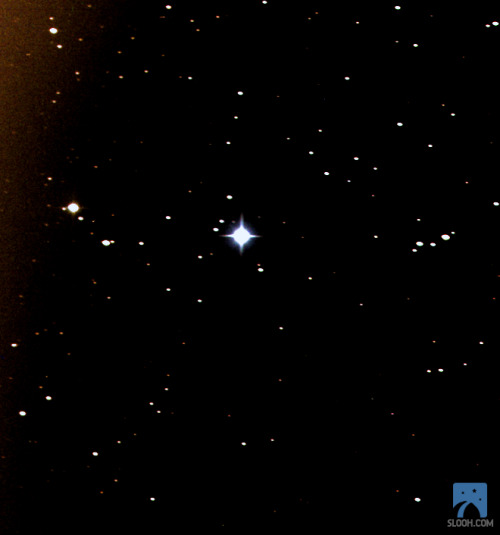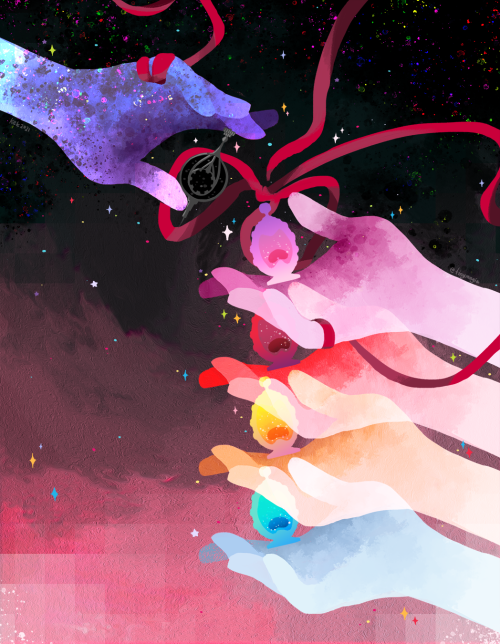Mystarypi - MystaryPi



More Posts from Mystarypi and Others

This is the Pleiades in culmination! ✨✨✨
Just a few weeks ago, this cluster culminated in the south - meaning that they reached their highest point and appeared its brightest. Thankfully, the telescopes were open briefly for me to take a quick picture! ♥♥♥
Taken by me (Michelle Park) using the Slooh Chile One telescope on November 23rd, 2020 at 2:37 UTC.

This is Ceres! 🌠🌠🌠
Ceres is the only dwarf planet in our inner solar system and the largest object within the Asteroid Belt. Water vapor is being released from the dwarf planet, resulting in Ceres losing 6kg of its mass per second through steam! 🌊🌊🌊
Taken by me (Michelle Park) using the Slooh Canary Two telescope on March 7th, 2022 at 20:11 UTC.


am supposed to write a few lines so people at uni can ~gET tO knOw Me~ and the pressure is. on.
like do i make myself look cool to get some friends or do i tell them about the loser i really am??



This is the Orion Nebula! ✨✨✨
There are around 700 newborn stars in this nebula and more are being born each year! This is without a doubt, the most photographed object in the night sky due to its bright and radiant colors. You might even be able to see it without a telescope (in good weather)! 😍😍😍
Taken by me (Michelle Park) using the Slooh Canary Two telescope on September 14th, 2020 at 5:36 UTC.

Throwback Thursday!

despite everything, you still love madoka magica (happy 10th anniversary!!)
One of my favorite nebulae ♥♥♥ It looks so beautiful 🥰🥰🥰

NGC 6357: Cathedral to Massive Stars via NASA https://ift.tt/31D4Lqn
How massive can a normal star be? Estimates made from distance, brightness and standard solar models had given one star in the open cluster Pismis 24 over 200 times the mass of our Sun, making it one of the most massive stars known. This star is the brightest object located just above the gas front in the featured image. Close inspection of images taken with the Hubble Space Telescope, however, have shown that Pismis 24-1 derives its brilliant luminosity not from a single star but from three at least. Component stars would still remain near 100 solar masses, making them among the more massive stars currently on record. Toward the bottom of the image, stars are still forming in the associated emission nebula NGC 6357. Appearing perhaps like a Gothic cathedral, energetic stars near the center appear to be breaking out and illuminating a spectacular cocoon.
(Published August 30, 2020)




This is the 2021 Pink Supermoon!🌜🌷🌸🌹🌺🌼💐💮
Although this moon is not pink, the name “Pink Moon” is named after the pink phlox flower that appears in the spring during the time of this event. This rare celestial event won’t happen again for another 8 years so be sure to check it out! ✨✨✨
Taken by me (Michelle Park) using the Slooh telescopes on April 26th, 2021.




-
 coldbleed liked this · 3 months ago
coldbleed liked this · 3 months ago -
 kinkinbette reblogged this · 7 months ago
kinkinbette reblogged this · 7 months ago -
 smoothbuttcheeks reblogged this · 8 months ago
smoothbuttcheeks reblogged this · 8 months ago -
 head-full-of-wishes reblogged this · 9 months ago
head-full-of-wishes reblogged this · 9 months ago -
 seraphynaa reblogged this · 11 months ago
seraphynaa reblogged this · 11 months ago -
 ivy-veins reblogged this · 1 year ago
ivy-veins reblogged this · 1 year ago -
 seraphynaa liked this · 1 year ago
seraphynaa liked this · 1 year ago -
 pyorin reblogged this · 1 year ago
pyorin reblogged this · 1 year ago -
 rianabonsoulctrac liked this · 1 year ago
rianabonsoulctrac liked this · 1 year ago -
 hannerslikes reblogged this · 1 year ago
hannerslikes reblogged this · 1 year ago -
 ayra-redwood reblogged this · 1 year ago
ayra-redwood reblogged this · 1 year ago -
 aerllora liked this · 2 years ago
aerllora liked this · 2 years ago -
 madafackingships reblogged this · 2 years ago
madafackingships reblogged this · 2 years ago -
 ordinarylifeofmellow reblogged this · 2 years ago
ordinarylifeofmellow reblogged this · 2 years ago -
 kevinchau reblogged this · 2 years ago
kevinchau reblogged this · 2 years ago -
 die-another-life liked this · 2 years ago
die-another-life liked this · 2 years ago -
 kintsugi-dream liked this · 2 years ago
kintsugi-dream liked this · 2 years ago -
 solianapaeris reblogged this · 2 years ago
solianapaeris reblogged this · 2 years ago -
 solianapaeris liked this · 2 years ago
solianapaeris liked this · 2 years ago -
 the-forceawakens reblogged this · 2 years ago
the-forceawakens reblogged this · 2 years ago -
 chiquichiri reblogged this · 2 years ago
chiquichiri reblogged this · 2 years ago -
 sweetbbygrlj reblogged this · 2 years ago
sweetbbygrlj reblogged this · 2 years ago -
 yourstrulyamvrie reblogged this · 2 years ago
yourstrulyamvrie reblogged this · 2 years ago -
 yourstrulyamvrie liked this · 2 years ago
yourstrulyamvrie liked this · 2 years ago -
 kawaiidesu reblogged this · 2 years ago
kawaiidesu reblogged this · 2 years ago -
 kawaiidesu liked this · 2 years ago
kawaiidesu liked this · 2 years ago -
 hilda-2301 liked this · 2 years ago
hilda-2301 liked this · 2 years ago -
 illuvin liked this · 2 years ago
illuvin liked this · 2 years ago -
 aneternalbraid liked this · 2 years ago
aneternalbraid liked this · 2 years ago -
 frogkingrile liked this · 2 years ago
frogkingrile liked this · 2 years ago -
 cutiebakugo reblogged this · 2 years ago
cutiebakugo reblogged this · 2 years ago -
 iwillhaveamoonbase liked this · 2 years ago
iwillhaveamoonbase liked this · 2 years ago -
 perseide7 liked this · 2 years ago
perseide7 liked this · 2 years ago
